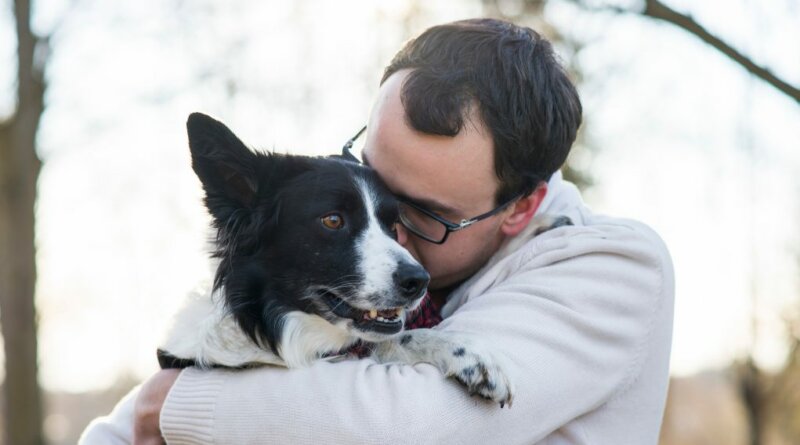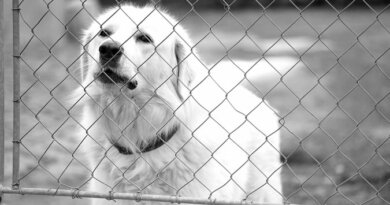10 Reasons Why Millennials Opt For Pets
In this generation, instead of choosing parenthood and starting a family, more and more millennials are opting to welcome and take care of pets.
Furthermore, it may be unusual for many, but the same people will also take care of their pets like their own children. They will buy everything from food to clothes to random drawings or paintings of their cats or dogs.
They will also show off hundreds of photographs of their furry friends. May it be during a get-together or simply by posting it on social media.
As we reflect on these things, we recognize how much of our past has changed. And compared to older generations, millennials are prominently more open to these changes.
This article will look at ten reasons millennials opt to choose pets vs. parenthood. However, let’s look back on how this started.
A Statistics On Pets Vs. Children, And How It Changed This Generation
Nowadays, it has been a norm for young adults to adopt, take care of, and treat their pets for various reasons. Thus, it is understandable to see their social media filled with pictures of their cats, dogs, or other animals.
If these young adults a decade ago, this would have raised several eyebrows.
According to a 2020/21 poll by Emma Bedford, Millennials own the highest percentage of pet ownership in the United States (32%). Baby Boomers follow them in second place (27%), with Generation Z coming in third accounting (24%).
As a result, the household rate for pet ownership in the United States grew from 56% in 1988 to over 70% in 2020.
In a recent survey conducted by YPulse, they found out that 76% of Millenials (ages 20 to 38) prefer to have pets over children. Over half of the Millennials who answered the survey own a dog, while 35% own a cat.
Although we can’t deny that pets are highly adorable, their popularity among millennials reflects more profound reasons.
And these reasons are the following.
10 Reasons Why Millennials Opt For Pets and Not Parenthood
Millennials are driven and assertive. They are now breaking stereotypes set by society, including having a child at a young age.
To know its reasons, let us look at the following reasons set from their point of view.
Pets Vs. Parenthood #1: Focus on their career
One of the primary reasons millennials prefer to have pets rather than building a family is that they want to focus on their careers first.
According to an analysis by Pew Research Center, 35% of the American labor force are Millennials. This result makes them the most significant generation in the U.S. labor force.
In a most recent data made in 2017, 56 million Millennials (ages 21 to 36) had careers or searched for one. This number was more than the 53 million Generation Z, who made up one-third of the workforce.
Meanwhile, only 9 million post-Millennials (born after 1996) were employed or seeking employment. Thus, accounting for 5% of the labor force.
Overall, work has already consumed most of the millennial’s time; hence, choosing pets over children. This choice doesn’t only make them happy but also lifts some of their responsibilities.
Pets Vs. Parenthood #2: Bearing the financial responsibility
Let’s face it. Most of us are under a burden of financial obligations, and millennials are no exception from it.
Whether it’s the lifetime cost that having a child brings or the high price of childbirth. It is undoubtedly one of the popular reasons why millennials delay or choose not to have a child.
Another reason is being in debt of student loans. The millennial student loans are twice or four times higher than their monthly salary, making it hard for them to pay off.
Adding a child to that would make it even harder.
Debt and present finances have consumed most Millennials, and having a child just doesn’t fit the context of the financial freedom that they would want to have.
Pets Vs. Parenthood #3: They think having babies are more costly than having pets
The price you pay to raise a child is high. According to the U.S. Department of Agriculture, raising a child to 17 years of age born from 2015 needs to be at least $233,610.
This cost includes all of their needs, such as housing, clothing, food, and other expenditures. Furthermore, this amount could pile up once they go to college and pursue their careers.
Add in the cost of the child of when they go to college and their supposed caprices, you could be looking at a pile of hundred thousand dollars.
For these reasons alone, millennials choose to have pets instead of having a family. It costs them less, but the amount of love they receive is the same as having a kid or even more.
Pets Vs. Parenthood #3: They think having babies are more costly than having pets
Pets also require a lot of love and attention. But unlike having a child, they don’t have to be constantly supervised.
Most dog owners tend to leave their pets at home alone, especially when it’s time to work. And so far, dogs have no problem with that, as long as their human companions come home.
But, parents do not have the luxury of doing that. Children, especially toddlers, require constant supervision; thus, it is not wise to leave them home alone.
As a result, parents are at an advantage from having a romantic dinner date with their partners or a night out with friends.
In contrast, millennial dog owners have the freedom to all of these, provided the pup has been cared for first.
Pets Vs. Parenthood #5: Millennials view their pets as “starter children”
Raising a dog may teach millennial couples who are either married or planning to have a kid with basic parenting skills. At the very least, it provides them insight into their partner’s potential as a parent.
Here are some examples of how millennials see this from their point of view.
Dogs wake them up in the middle of the night due to crate training. Infants or toddlers do the same when they ask for milk.
On the other hand, dogs may also act stubborn most of the time, especially when something upsets them. Children are the same, except for frequent temper tantrums.
Furthermore, depending on the dog’s characteristics and personalities, they can be highly mischievous. They can either gnaw on slippers or dig a flower out from someone’s garden.
But children are not much different. They will either spill something from the fridge or make a canvas painting out of the house’s color white walls.
Through these scenarios, a millennial or a millennial couple will practice handling and preparing themselves for parenting.
Although raising dogs or infants is similar, they aren’t the same. That’s why they are called “starter children.”
Millennials are incredibly goal-driven. As a result, they sometimes forget to care for themselves. Thus, we would like to discuss their choice beyond choosing pets instead of children.
Pets Vs. Parenthood #6: Pets have many health benefits, says millennials
Owning a pet consists of a couple of advantages. However, one thing that stands out the most is their ability to reduce the risk of cardiovascular-related diseases.
Studies have shown that when humans and dogs positively interact (e.g., cuddling), they exhibit a surge in oxytocin, resulting in a positive emotional state.
In 2013, the American Heart Association made a study about how pet ownership can affect cardiovascular risk. They concluded that having a pet, especially a dog, can reduce the risk and increase survival among cardiac patients.
On the other hand, pets can also improve one’s immune system.
Research suggests that exposure to pets can increase the salivary levels of an immune antibody called IgA. IgA is primarily the key to our immune defense.
One example is a meta-analysis made in 2012. This meta-analysis showed that there had been a decrease in developing eczema upon association with any pet.
In addition, dogs can also help detect cancer thanks to their sharp sense of smell. Depending on the type of cancer, they can catch one through a person’s skin, breath, or sweat.
A more recent study showed that they could smell cancer with 97% accuracy using blood samples. Furthermore, what’s more impressive, is that they can do this with the four stages of the disease.
However, it’s not only cancer that dogs can smell. They can do the same with Malaria, Parkinson’s Disease, and Diabetes too.
Pets Vs. Parenthood #7: Pets are good for mental health
A recent survey by the National Center for Health Statistics and the Census Bureau found that 44% of millennials have anxiety and depression in the U.S. These mental health issues often take a toll on their life, causing them to the point of burnout.
Thus, to avoid spiraling further, millennials choose to take care of pets rather than children. But what can pets do that children cannot?
As I’ve mentioned above, having children comes with greater responsibilities. In parenthood, it doesn’t just cost money, but also one’s life.
In contrast, pets don’t require one to do all these things. They are simply happy with what their owner can give them.
And that’s what makes millennials and dogs a perfect combination.
One study tells us that most pet owners have better overall well-being than non-pet owners. In addition, another study also found that dogs promote good psychological well-being by lowering stress levels and boosting self-esteem.
Furthermore, most dogs are excellent stimuli for healthy activity. As a result, they can significantly improve your mood and alleviate loneliness.
According to Sandra Barker, studies with therapy dogs show that even brief encounters can reduce anxiety and panic in humans.
Pets Vs. Parenthood #8: Pets are better companions
Pets not only give love and affection, but they give lifelong companionship to their owner.
According to the American Veterinary Association, the human-animal bond thrives off in a give and take relationship. As a result, it influences their behaviors essential to both their well-being.
Kit Darling said humans and pets could form several bonds. And that includes emotional, physical, and psychological relationships.
It’s one of the reasons why millennials opt to have them. A pet’s loyalty is unwavering, and they would love their owners unconditionally.
Although pets show their love differently, it does not make it any less genuine.
Pets Vs. Parenthood #9: Pets help millennials to be in better shape
The Journal of Physical Activity & Health found that people with pets, especially dogs, are more likely to be physically fit.
The research showed that dog owners exercise more than non-dog owners. Thus, increasing their physical activity by 69% and speed by 28%.
Dogs walkers aren’t only getting more exercise, but they are getting better ones because they walk fast and cover more areas.
With rising rates of obesity in America, more millennials are getting more conscious about their health. Hence, having a dog puts them in better shape while living a long healthy life.
Walking your dog out at the park, mall, or other public places leads to small conversations with other dog lovers. These small conversations will later turn into hangouts to more profound and closer relationships.
Studies found that having a pet reduces social isolation and promotes better social interactions.
One study published by the Journal of Personality and Social Psychology said that pet owners have higher self-esteem and a sense of belonging than non-owners.
A survey published by PLoS One said that the third most popular way respondents meet individuals in their communities was through their pets. Pet owners were 60% more likely than non–pet owners to meet people in areas they had never met before.
Dog owners, particularly those who walked their dogs, were also significantly more likely to have reported befriending or receiving social assistance from someone they met through a pet-related relationship.
Is It Only The Millennials?
With all the craze of choosing pets over children, it makes you wonder if it’s only the Millennials that are on board with this?
To answer that question, no, it isn’t. Predominantly, most people prefer to adopt pets rather than create families.
Millennials and Gen Z currently account for 62% of all pet owners, while older generations own only 32% of pets.
And as younger generations treat their dogs as their “firstborn child,” they will also likely drive a significant shift in pet businesses.
Over ⅖ of 16-34-year-old pet owners consider their pets to be their children. The same proportion believes that spending more time at home has brought them closer to their pet.
In other words, this generation adores its pets and considers them to be members of the family more than ever before.
Taking excellent care of their pet is now a number one priority.
Conclusion
“The only thing that remains constant is change.”
For the past few years, a lot of things have changed. And that includes our priorities.
Millennials, who grew up in a different generation, create more drastic and distinct changes in their time.
Several studies showed that they’re getting married and having children much later than the previous generations. And the focus now isn’t to have kids but to be successful in their careers.
Although having a pet doesn’t differ from having children, there’s no denying that most millennials now are defying the traditional family model.
Regardless of the reason for their choices, it’s their right to prioritize what’s best for them.
NEXT READ: 25 Ways to Be a Responsible Dog Owner
Related


















canadianpharmacymeds com https://canadiandrugs.pro/# best mail order pharmacy canada
generic cialis quick shipping: cialis® cialis legal purchase
where can i buy cipro online https://ciproantibiotic.pro/# ciprofloxacin over the counter
indianpharmacy com https://indiapharmfd.com/# – indianpharmacy com
cheapest online pharmacy india https://indiapharmacy.world/# – best online pharmacy india
buying ed pills online https://edpills.ink/# – cheap erectile dysfunction
buy viagra here https://viagra.eus/# over the counter sildenafil
buy kamagra online usa https://kamagra.icu/# – super kamagra
Generic Cialis price https://cialis.foundation/# – Cheap Cialis
kamagra https://kamagra.icu/# – Kamagra 100mg
india online pharmacy https://indiapharmacy.pro/# – top online pharmacy india indiapharmacy.pro
mexico drug stores pharmacies https://mexicanpharmacy.company/# mexican drugstore online mexicanpharmacy.company
top 10 pharmacies in india indian pharmacies safe buy prescription drugs from india indiapharmacy.guru
best erection pills ed pills gnc new ed pills edpills.tech
buy cipro online https://ciprofloxacin.life/ buy ciprofloxacin over the counter
order prednisone 10mg prednisone 20 mg in india online order prednisone prednisone.auction
prednisone 5 mg tablet https://prednisonepharm.store/ prednisolone prednisone
can i get cheap clomid now https://clomidpharm.shop/ clomid prices
aviator betting game: https://aviatorghana.pro/ aviator game bet
gates of olympus giriş – https://gatesofolympus.auction/ gates of olympus demo türkçe
aviator oyunu https://aviatoroyna.bid – aviator oyunu giris